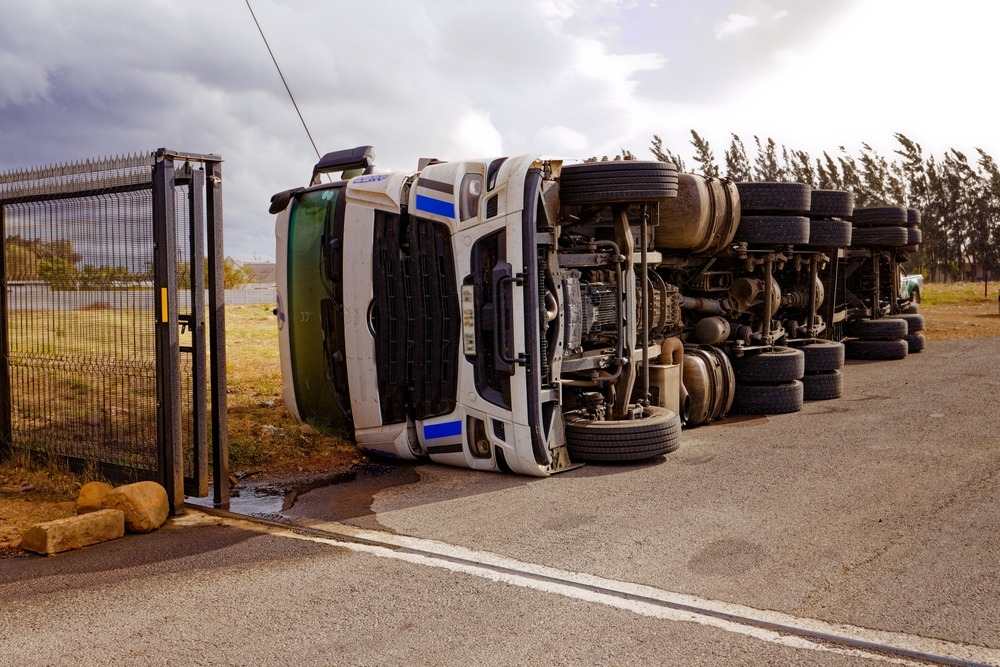Long-haul truckers are the unsung highway heroes, moving the goods that keep our shelves stocked and our lives humming. But behind the scenes of those cross-country journeys lies a lurking danger that’s as silent as it is deadly: drowsy driving. It doesn’t come with flashing warning signs or dramatic sirens. Instead, it creeps in slowly—heavy eyelids, slower reaction times, a wandering mind—and a routine drive can become a life-altering disaster before you know it, necessitating the intervention of a Seattle truck accident attorney. So, how can truckers fight fatigue and keep the rubber side down? Buckle up, because we’re about to unpack the essentials to stay sharp behind the wheel.
Know Thy Enemy: What Drowsy Driving Really Looks Like
Let’s clarify: Drowsy driving isn't just "being a little tired." It’s a cognitive impairment that can mimic the effects of alcohol. According to the National Sleep Foundation, being awake for 18 hours straight can affect you the same way a blood alcohol content (BAC) of 0.05% does. Push that to 24 hours, and it's like you're legally drunk. Now imagine piloting 80,000 pounds of steel and cargo with that level of impairment. Scary? It should be.
Build a Sleep Fortress: Prioritize Quality Rest
We get it—life on the road isn’t exactly spa-level restful. But quality sleep is non-negotiable. Aim for 7 to 9 hours of solid sleep per 24-hour period. Try to maintain a consistent sleep schedule, even if that means catching Z’s during daylight hours. Blackout curtains, earplugs, and a white noise machine can make even a parking lot snooze surprisingly restful. Avoid caffeine and heavy meals before bed, and if you’re using your phone in the bunk, turn on night mode or (better yet) ditch the screen entirely.
Nap Like a Pro
When a full night's sleep isn’t an option, a power nap can be a lifesaver—literally. Even 20–30 minutes can boost alertness and improve performance. Just be careful not to nap too long, or you’ll wake up groggier than when you started. Bonus tip: If you’ve got time for a "caffeine nap," drink coffee before a quick nap. It sounds counterintuitive, but the caffeine kicks in just as you wake up, giving you a double shot of alertness.
Nutrition Matters: Fuel the Driver, Not Just the Truck
Ever tried driving after a fast-food binge? Not ideal. The food you eat affects how awake (or sleepy) you feel. Go for protein-rich snacks, fruits, nuts, and complex carbs. Stay hydrated, but avoid overloading on sugary drinks or energy shots that lead to a crash later—both the metaphorical and the actual kind.
Move It or Snooze It: Get Active
Exercise might be the last thing on your mind after hours of driving, but even a short walk around the truck stop or a few stretches can boost circulation and keep drowsiness at bay. Physical activity triggers the release of endorphins—your brain’s natural energy drink. Think of it as maintenance for your most important engine: your body.
Use Tech Wisely
Today’s tech offers more than just GPS directions and streaming podcasts. Fatigue detection systems, lane departure warnings, and in-cab alertness monitors can all serve as your co-pilot in the fight against drowsiness. Don’t get too cozy with tech—nothing replaces good old-fashioned rest.
Know When to Say “I Need a Break”
Truckers are known for their grit and perseverance, but there’s no shame in pulling over. Recognizing when you’re too tired to drive isn’t weakness—it’s wisdom. Your job is important, but your life (and the lives of others on the road) is priceless. If you're nodding off, even briefly, your body screams…Stop now.
When Trouble Hits: Why Legal Advice Is a Must
If you ever find yourself in a drowsy-driving-related incident, whether you're at fault or not, the legal waters get murky fast. Fatigue can complicate liability, insurance claims, and even your CDL status. That’s why it's crucial to consult a lawyer who understands the nuances of trucking law. A qualified Seattle truck accident attorney can protect your rights, help you navigate investigations, and potentially save your livelihood. Don’t wait until you’re already facing fines or lawsuits—legal advice isn't just smart, it's your best line of defense.
Final Thoughts
Combating drowsy driving isn’t about being tough—it’s about being smart. From better sleep habits to strategic naps and knowing when to ask for help, truckers have more tools than ever to stay alert and safe. But if fatigue leads to a crash, don’t try to handle it solo. Get a lawyer who knows the road just as well as you do. Because when you’re behind the wheel of a big rig, being well-rested—and well-represented—can make all the difference.

.jpg)




